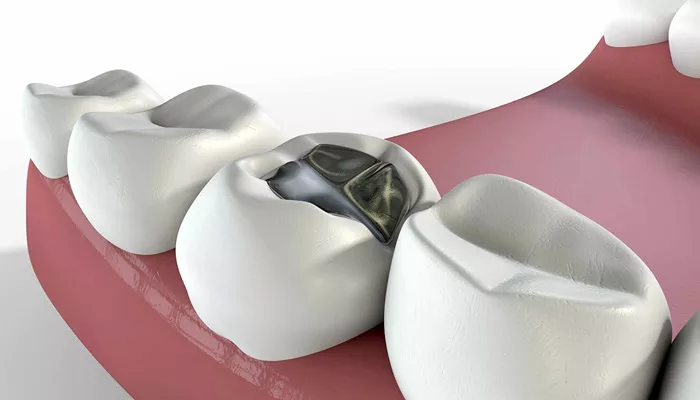Dental fillings are essential for restoring teeth affected by decay or damage. They help maintain the structure and function of teeth, preventing further deterioration. Among the various materials available for dental fillings, some stand out for their strength and durability. This article delves into the strongest dental filling materials, exploring their properties, advantages, and considerations for use.
Types of Dental Filling Materials
When considering dental fillings, it is crucial to understand the different types available. The most common materials include:
- Silver Amalgam
- Gold
- Composite Resin
- Ceramic (Porcelain)
- Glass Ionomer
Each material has unique characteristics that make it suitable for specific dental situations.
Silver Amalgam
Silver amalgam is a mixture of metals, including mercury, silver, tin, copper, and zinc. It has been used for over a century due to its remarkable durability and strength.
Advantages:
Durability: Amalgam fillings can last between 10 to 15 years or more, making them one of the most long-lasting options available.
Cost-Effective: They are generally less expensive than other filling materials.
Strength: Amalgam can withstand significant chewing forces, making it ideal for back teeth where pressure is greatest.
Disadvantages:
Aesthetics: The metallic color does not blend well with natural teeth, making them less desirable for visible areas.
Mercury Concerns: Although studies indicate that amalgam is safe for most patients, concerns about mercury content persist among some individuals.
Gold Fillings
Gold fillings are made from a gold alloy and are known for their exceptional durability.
Advantages:
Longevity: Gold fillings can last up to 15 years or longer with proper care.
Biocompatibility: Gold is non-corrosive and poses minimal risk of allergic reactions.
Strength: They can withstand chewing forces effectively and are less likely to fracture compared to other materials.
Disadvantages:
Cost: Gold fillings are among the most expensive options available due to the cost of materials and the labor-intensive process required for placement.
Aesthetics: Similar to amalgam, gold does not match the color of natural teeth, which may be a drawback for some patients.
Composite Resin Fillings
Composite resin fillings consist of a mixture of plastic and fine glass particles. They are popular for their aesthetic appeal.
Advantages:
Aesthetic Appeal: Composite fillings can be color-matched to natural teeth, making them an excellent choice for visible areas.
Bonding Strength: These fillings bond well with tooth structure, providing additional support.
Disadvantages:
Durability Issues: Composite fillings typically last between 5 to 10 years, which is shorter than amalgam or gold options.
Wear Resistance: They may wear down more quickly under heavy chewing forces and can be prone to staining over time.
Ceramic (Porcelain) Fillings
Ceramic fillings are made from high-strength porcelain material and offer a good balance between aesthetics and durability.
Advantages:
Natural Appearance: Ceramic can be customized to match the exact shade of natural teeth, making them virtually indistinguishable from surrounding enamel.
Stain Resistance: Ceramic is resistant to staining and does not discolor over time like composite materials.
Disadvantages:
Cost: Ceramic fillings tend to be more expensive than both amalgam and composite options due to the material costs and fabrication process.
Brittleness: While strong, ceramic can be more brittle than other materials and may not be suitable for high-stress areas in some cases.
Glass Ionomer Fillings
Glass ionomer fillings are made from acrylic and glass powder. They are often used in pediatric dentistry or areas not subject to heavy chewing pressure.
Advantages:
Fluoride Release: Glass ionomer releases fluoride, which can help prevent further decay in adjacent teeth.
Good Bonding Properties: They bond well to tooth structure without requiring additional adhesives.
Disadvantages:
Durability Limitations: Glass ionomer fillings are generally less durable than other filling types and may need replacement more frequently.
Aesthetic Limitations: While they can be tooth-colored, they do not match the aesthetics of composite or ceramic options as closely.
Comparing Durability And Strength
The strength and durability of dental filling materials are critical factors when choosing the right option. Below is a comparison table summarizing the longevity and suitability of each filling type:
| Filling Type | Longevity (Years) | Suitable Locations | Aesthetic Quality |
| Silver Amalgam | 10月15日 | Back teeth | Low |
| Gold | 15+ | Back teeth | Low |
| Composite Resin | 5月10日 | Front teeth & small cavities | High |
| Ceramic | 10月15日 | Front teeth & visible areas | High |
| Glass Ionomer | 5月7日 | Pediatric & low-stress areas | Moderate |
Conclusion
When considering dental fillings, it is essential to weigh factors such as strength, durability, aesthetics, and cost. Silver amalgam remains one of the strongest options due to its longevity and ability to withstand chewing forces. Gold fillings also offer exceptional durability but come at a higher price point. Composite resin and ceramic fillings provide excellent aesthetic results but may require more frequent replacements due to their lower durability.
Ultimately, the choice of filling material should be guided by individual needs, including the location of the cavity, personal preferences regarding appearance, and budget considerations. Consulting with a dental professional will ensure that patients receive personalized recommendations tailored to their specific dental health needs.
Related topics:

